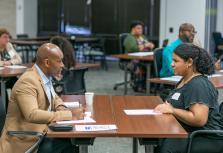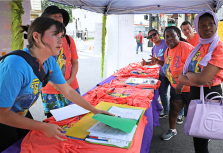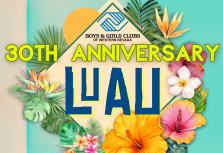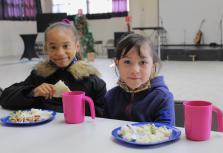
Opportunity Details
NPower is currently seeking volunteers to assist with the Fall 2023 Mock Interview Event which is taking place on Monday, Oct. 23 from 10 am - 3pm at the Alamo Area Council of Governments. Mock Interviews will take place in the morning followed by lunch and an employer panel. Please sign up here: https://airtable.com/appfCbGrN21UZyYYV/shrkJnRzS0lLRVfB8What/Who is NPower?
NPower is a leading nonprofit organization dedicated to empowering veterans, veteran spouses, and young adults from underserved communities with the tech skills, mentorship, and support needed to excel in the digital economy. Our Tech Fundamentals Program equips participants with a strong foundation in technology, preparing them for rewarding careers in the tech industry. NPower launched in San Antonio earlier this year, thanks to the help of USAA.
Purpose of the Event
This event is to help our trainees sharpen their interview skills and help coach them through the interview process. Many of our trainees have never had a professional interview or may have only had military interviews while serving. We want to help prepare them to be successful when the land those interviews as they prepare to jump into the tech industry.
What type of Volunteers are we seeking?
We'd love to have anyone with a hiring, recruiting or human resource background. In addition, if you are an Employer looking to hire, we'd love to have you participate as well. We will provide you with 10 top general interview questions for you to ask, and you will have the opportunity to give direct feedback as well as written feedback.
If you'd like to volunteer, you can click here to RSVP
A light breakfast, coffee, drinks and lunch will be provided.
If you have any questions or would like more information, please feel free to reach out to Jose Muniz.
Available Shifts
| Shift Name | Signup Max | Start | End |
|---|---|---|---|
| Mock Interviewer | 50 | n/a | n/a |

Opportunity Details
Alliance for Positive Change operates a clothing room for our participants to access daily. We serve low-income New Yorkers with HIV and other chronic conditions, many of whom are homeless/unhoused, cannot afford to purchase clothes, and/or are entering the workforce for the first time in years.We accept clean, gently used (no holes or stains), and/or new clothing for adult men and women (all sizes); jeans and dress pants; sneakers and boots; dress shirts; winter coats/overcoats; basic t-shirts; gloves and scarves; sweatshirts/sweatpants; hoodies; business casual wear.

Opportunity Details
MONTCLAIR JAZZ FESTIVAL JAMBOREE FINALE - SEPTEMBER 9TH!Calling all MONTCLAIR JAZZ FESTIVAL volunteers! Are you OUTGOING and A LOVER OF MUSIC?
The JAMBOREE (the final major event of the MONTCLAIR JAZZ FESTIVAL) is just around the corner - presented by BDP Holdings, in collaboration with the Montclair Center BID and produced by JAZZ HOUSE KiDS! We are excited and proud to be hosting MONTCLAIR JAZZ FESTIVAL events throughout the summer, concluding in September with the Downtown Jamboree.
We're reaching out to ask you to consider VOLUNTEERING this summer. The JAMBOREE is SATURDAY, SEPTEMBER 9TH. Don't miss your chance to be a part of the team for this exciting event! Not only will you be a major contribution to the events success, but you will also get to enjoy the fantastic music of JAMBOREE'S artist lineup AND celebrate a job well done with staff at a party in September!
As a MONTCLAIR JAZZ FESTIVAL volunteer, we are so grateful to you in advance for considering JOiNING us this year. We currently have morning, afternoon and evening shifts available on all event dates. For any and all questions, please reach out to any of our JAZZ HOUSE KiDS VOLUNTEER COORDINATORS:
Lucy Lynch at llynch@jazzhousekids.org
Nicolas Hughes-Barrow at nhughesbarrow@jazzhousekids.org
Michael Topping at mtopping@jazzhousekids.org
Thank you and we look forward to seeing you soon!
Available Shifts
| Shift Name | Signup Max | Start | End |
|---|---|---|---|
| Festival Load-in | 10 | n/a | n/a |
| Festival Load-in | 20 | n/a | n/a |
| Festival: Event (Welcome Tents, Bar/Merch Sales) | 44 | n/a | n/a |
| Festival: Event (Welcome Tents, Bar/Merch Sales) | 44 | n/a | n/a |
| Festival: Event (Welcome Tents, Bar/Merch Sales) | 44 | n/a | n/a |
| Festival Load-out | 20 | n/a | n/a |

Opportunity Details
Alliance for Positive Change distributes over 300 gifts in December to children, families, and the participants we serve. We serve low-income New Yorkers with HIV and other chronic conditions, many of whom come to us over the holidays to find connections to health services, reduce isolation, and find community.We are requesting companies and volunteers to help us collect: adult winter coats (men & women); toys, games, and winter clothes (toddler to teenager); gift cards to purchase clothes and food; hygiene and beauty products; new socks and undergarments; scarves and gloves (adult sizes); backpacks; and general items to include in gift bags.
All items must be new and unopened/unused.
Available Shifts
| Shift Name | Signup Max | Start | End |
|---|---|---|---|
| Availability drop off time | no limit | n/a | n/a |

Opportunity Details
Project Ropa is seeking dedicated individuals to join our Board of Directors and help shape the future of our organization. As a small nonprofit, we work tirelessly to provide clothing and hygiene essentials to people in need while advocating for clothing to be classified as essential by the government. Despite the critical nature of our work, we are often overlooked by traditional funders and do not qualify for substantial government funding, unlike many organizations within the continuum of care. With a waitlist of 65 organizations at 87 locations requesting supplies, the need for our services is overwhelming.Clothing is essential for dignity, health, and opportunity—it is a basic need that affects every aspect of a person’s life. Yet, as clothing is not currently classified as essential, access remains a challenge for many. By joining our Board, you can play a pivotal role in driving awareness, securing resources, and advocating for systemic change. Your expertise and leadership can help us expand our impact and ensure that everyone has access to these fundamental necessities. Join us in creating a more equitable and compassionate community.
Board members must be able to commit to attend at least four one hour board meetings a year and fundraiser events which are 1-2 times a year.
RESPONSIBILITIES
- Raise awareness
- Engage donors and fundraise
- Plan events
- Be engaged and communicate promptly and professionally
- Attend regular meetings
- Benefits to Member
- Sit-ins on Governing Board meetings
- Professional development
Board meetings are done virtually.

Opportunity Details
Project Ropa is a nonprofit dedicated to providing clothing and hygiene essentials to those in need across Los Angeles. We are currently seeking volunteers to help create hygiene kits and organize clothing donations at our warehouse in Gardena. With over 65 organizations at 87 locations on our waitlist, the demand for our services is greater than ever. Our mission includes providing direct support through our mobile clothing closet and distributing bulk supplies to over 40 organizations throughout the city.Did you know that clothing is not classified as essential by the government, yet it is illegal to be in public without it? This paradox highlights the critical role clothing plays in maintaining dignity, health, and opportunities for individuals. Your time and effort as a volunteer can help us continue meeting this pressing need and make a meaningful difference in the lives of those we serve. Join us and be part of a movement that values basic human needs and empowers our community.
We have volunteer opportunities on Mondays, Wednesdays and Fridays from 10am-2:30pm and on the 1st and 3rd Saturday of the month from 10am-1pm.

Opportunity Details
Are you interested in making a difference in your community? Our nonprofit organization is committed to improving the lives of those in need through various programs and initiatives. We are always searching for volunteers who share our passion and dedication to creating a better world. Whether you have a few hours or a few days to spare, we value your time and skills. We would be privileged to have you join us in our mission to bring about positive change.
Opportunity Details
On Sept 9th from 4pm-9pm we are celebrating 30 years of compassionately supporting families in our community. The funds raised at the Luau will help our mission to open doors of opportunity for kids and help families through challenging times. This is our 30th Anniversary so we are pulling out all the stops to make an unforgettable evening which will directly impact the futures of the kiddos and families we serve.The following are the tasks for volunteering and times needed:
1. Opening Shift 3:30-7:30pm—Direct parking; show people to their tables; dinner service assistance (helping people from their tables to the food line, assisting our shave ice vendor, assisting cleanup of tables).
2. Closing Shift 5-10pm—dinner service assistance (helping people from their tables to the food line, clearing tables by 7:30pm, assisting our shave ice vendor, assisting cleanup of tables) & helping tear down at the end (9-10pm).
We ask for volunteers to wear Luau/ Hawaiian themed clothing. No tank tops or short shorts, keep it professional please! All black clothing is also acceptable. If you sign up for the 3:30-7:30pm time slot, we advise that you bring a hat.
Available Shifts
| Shift Name | Signup Max | Start | End |
|---|---|---|---|
| Opening Shift | 25 | n/a | n/a |
| Closing Shift | 25 | n/a | n/a |

Opportunity Details
El pilar de vida saludable de nuestro modelo integral ofrece comida caliente a los niños, niñas y adolescentes que atendemos. Con el fin de asegurar que cuenten con alimento diario que cumple con el 60% de la ingesta diaria nutricional sugerida y puedan gozar de un pleno desarrollo.Detectamos que debido a la ajetreada dinámica familiar y el aumento de distancias de un punto a otro, complicaba que los padres de familia dieran de comer a sus hijos en tiempo y forma, es por ello que nos hemos dado a la tarea de ofrecer un platillo completo a los pequeños que atendemos.

Opportunity Details
L'association Toit à Moi aide des personnes en situation de grande exclusion à changer de vie durablement.Comment ? En les logeant et en les accompagnant vers la réinsertion, à travers l’élaboration et la concrétisation de leur nouveau projet de vie.
Nous avons besoin de faire une levée de fonds internationale sur Benevity pour financer notre action et son développement.
Nous avons besoin d'aide pour formuler notre projet sur Benevity et avoir un impact sur les donateurs pour réussir notre levée de fonds?
